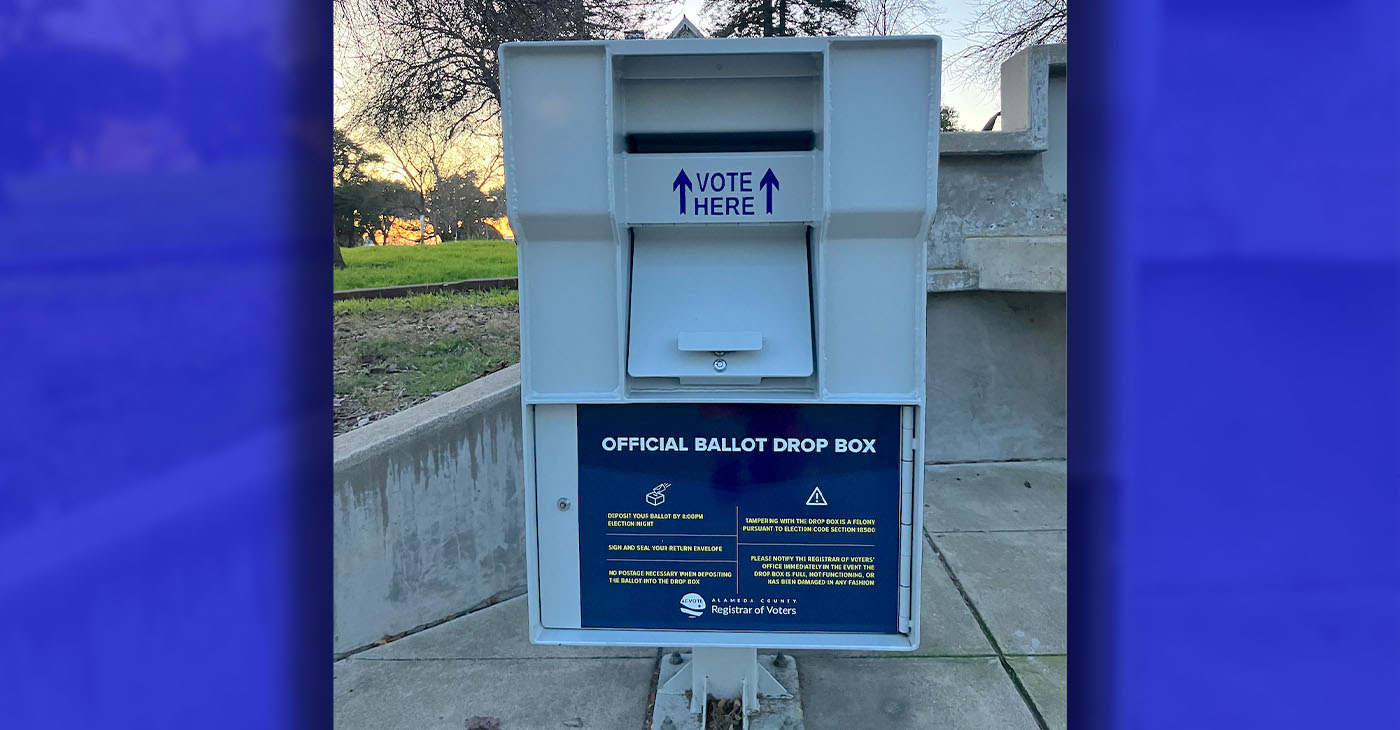Health
Unexpected Struggles in the Fight Against Ebola
LOS ANGELES SENTINEL — The battle to knock out the Ebola virus should have its eyes on the goal. Instead, politics and a divisive struggle between two drug makers has interfered. A key health minister in the Democratic Republic of Congo (DRC) has resigned in protest. In his resignation letter, Health Minister Oly Ilunga Kalenga condemned President Felix Tshisekedi ‘s takeover of the country’s Ebola response, removing him as head of the Ebola response team.
By Global Information Network
The battle to knock out the Ebola virus should have its eyes on the goal. Instead, politics and a divisive struggle between two drug makers has interfered. A key health minister in the Democratic Republic of Congo (DRC) has resigned in protest.
In his resignation letter, Health Minister Oly Ilunga Kalenga condemned President Felix Tshisekedi ‘s takeover of the country’s Ebola response, removing him as head of the Ebola response team.
He also criticized what he described as outside pressure to roll out a second experimental Ebola vaccine.
Oly Ilunga Kalenga defended the work of his ministry, saying it had communicated daily on the situation in the ongoing outbreak “to reassure and show the world that the country is managing this epidemic.”
But on Saturday, Tshisekedi’s administration announced that direct supervision of the Ebola response was being placed with a team of experts under the direction of Jean Jacques Muyembe Tamfum, director-general of the DRC’s National Institute for Biomedical Research (NIBR) and a microbiologist at the University of Kinshasa’s medical school. Tamfum has studied Ebola and responded to outbreaks for more than 40 years.
The change in leadership came days after the World Health Organization (WHO) declared the Ebola outbreak a Public Health Emergency of International Concern. “There is no sign of this epidemic slowing down. We therefore welcome the DRC President’s bold decision to change strategy and bring the Ebola response under his direct supervision,” Peter Piot, director of the London School of Hygiene & Tropical Medicine, said in a statement.
Since August 2018, the DRC has recorded more than 2,500 cases of Ebola and, among them, more than 1,700 deaths.
In his resignation letter, Kalenga attacked efforts to launch trials of an experimental vaccine made by Johnson & Johnson (J&J) in the country. A Merck & Co. vaccine is already in use there.
Groups backing the use of the J&J vaccine include the Wellcome Trust, Doctors Without Borders, the Coalition for Epidemic Preparedness Innovations (CEPI), WHO, J&J, and NIBR.
But there are important differences from Merck’s vaccine that have to be taken into account, he said. Made from a live, replicating virus, Merck’s vaccine mounts protection against Ebola in about 10 days. While the J&J immunization appears to raise the body’s defenses for the long-term, it’s administered in two shots, about two months apart.
“We have developed a vaccine for a time of peace,” said Paul Stoffels, J&J’s chief scientific officer. He worked in clinics in poor African communities in Congo and elsewhere for years before coming to the company.
How much, if any, protection a person gets from the first shot before getting the second isn’t clear. Ensuring people are fully vaccinated with the two-shot regimen would be challenging among mobile populations, especially in people fleeing conflict, and could stoke suspicions.
This article originally appeared in The Los Angeles Sentinel.
California Black Media
Stakeholders Warn Lawmakers of Expanding Aging Population; Older Black Californians Included
The California Commission on Aging (CCoA) hosted its second annual forum focused on challenges facing Californians over 65 years old. Titled “Aging and Disability Issues: What Legislative Staff Need to Know for 2024,” the virtual event was organized to bring awareness to lawmakers that California’s aging adults are living longer and to emphasize the importance of developing policy to support this growing population, according to organizers.

By Antonio Ray Harvey, California Black Media
The California Commission on Aging (CCoA) hosted its second annual forum focused on challenges facing Californians over 65 years old.
Titled “Aging and Disability Issues: What Legislative Staff Need to Know for 2024,” the virtual event was organized to bring awareness to lawmakers that California’s aging adults are living longer and to emphasize the importance of developing policy to support this growing population, according to organizers.
This year’s meeting included the perspectives of gerontologists and other subject-matter experts who provided data and insights critical to informing policy.
Former Assemblymember Cheryl Brown (D-San Bernardino), who chairs the CCoA’s Executive Committee, began the discussion.
“The landscape of California is changing. Aging is changing and it’s changing California,” Brown said. “Older adults are living longer, and the cohort is becoming more ethnically diverse, underscoring the need to develop culturally, appropriate services.”
The discussion encompassed a range of topics including planning for long-term care, assisted living, enhancing healthcare quality, technology use, services for senior adults with disabilities, state budget considerations, and the best policies and practices to help aging adults stay healthy, active, independent, and confident.
The CCoA acts as the principal advocate for older Californians and as a catalyst for change that supports and celebrates Californians as they advance in age. The CCoA advises the Governor and Legislature, along with state, federal, and local agencies on programs and services that affect senior adults.
Statewide organizations that participated in the event included LeadingAge California, Disability Rights California, California Foundation for Independent Living Centers, and California Collaborative for Long-Term Services and Supports.
In addition, representatives and staff members of Choice In Aging, Age Watch Newsletter, California Elder Justice Coalition, California Association of Area Agencies on Aging, and the California Long-Term Care Ombudsman Association were presenters during the 90-minute discussion.
“In California, we know that older adults are underserved and unserved relative to their needs,” CCoA Executive Director Karol Swartzlander said. “In stark terms, we know that 4% of older adults who need service actually receive services.”
According to the California Department of Aging (CDA), California’s aging population is expected to reach an estimated 4.5 million individuals ages 60 to 69 and 4.2 million senior adults ages 70- to 79 by the year 2040, based on information from CDA’s Master Plan for Aging.
Recognizing that the state’s 65-plus population is projected to grow to 8.6 million by 2030, Gov. Gavin Newsom issued an executive order calling for the development of the MPA.
Debbie Toth, from ChoiceInAging, said the MPA is a model of “how we can do better” to service the needs of older adults. ChoiceInAging, Toth said, “is going to be shopping accessible transportation and rate increases for adult day healthcare.
“But we need to have legislation to do it,” Toth told legislative staff members.
A 2016 California Health Report (CHR) revealed that by 2030, 18% of the state will be 65 or older. Projections in that study also indicated that 52% of these older adults would be from diverse minority groups but “no population is expected to be harder hit than African Americans,” the report stated.
California Black Media
Asm. Akilah Weber Introduces Bill to Protect Terminally Ill Californians
On Feb. 7, Assemblymember Akilah Weber (D-La Mesa) introduced legislation, Assembly Bill (AB) 2180, designed to ensure that terminally or chronically ill people living in California can afford their life-saving medications.
If passed, the law would require California health plan providers, insurers and pharmacy benefit managers (PBMs) to count the value of financial assistance provided by subsidy programs towards a terminally ill patient’s deductible and out-of-pocket expenses.

By California Black Media
On Feb. 7, Assemblymember Akilah Weber (D-La Mesa) introduced legislation, Assembly Bill (AB) 2180, designed to ensure that terminally or chronically ill people living in California can afford their life-saving medications.
If passed, the law would require California health plan providers, insurers and pharmacy benefit managers (PBMs) to count the value of financial assistance provided by subsidy programs towards a terminally ill patient’s deductible and out-of-pocket expenses.
“When insurers and PBMs do onto count the value of copay assistance toward cost-sharing requirements, patients often experience “a copay surprise” at the pharmacy counter and may be forced to walk away without their needed medication because they cannot afford it,” wrote Weber in a statement.
Over 80 patient advocacy organizations, medical foundations and other groups applauded Weber for introducing the legislation.
“The All Copays Count in California Coalition commends Dr. Weber for championing legislation that will improve patient access to medications and protect the most vulnerable Californians from harmful and deceptive insurance schemes that raise patient costs,” said Lynne Kinst, Executive Director of Hemophilia Council of California (HCC), which is a cosponsor of the bill.
According to the HCC, an estimated 70% of patients “abandon their prescription medications when their out-of-pocket costs reach $250 or more.
Bay Area
Who Are the Top Donors in the Alameda County District 5 Supervisor’s Race?
District 5 covers West and North Oakland and includes Emeryville, Berkeley, Piedmont and Albany. The five-member Board of Supervisors sets the county’s budget, governs its unincorporated areas, oversees the sheriff, Alameda Health System, and the mental health system. Voting in this election has already begun. Most of those living in the district will have been mailed paper ballots. Residents can also vote in person on March 5, the last day voting is open. If no candidate gets more than half of the votes, the top two candidates will face off in the general election in November.

About $342,500, a little less than half of the approximately $705,000 raised in the race so far, has come from just 30 sources.
By Zack Haber
Nine candidates are running to represent District 5 on the Alameda County’s Board of Supervisors.
District 5 covers West and North Oakland and includes Emeryville, Berkeley, Piedmont and Albany.
The five-member Board of Supervisors sets the county’s budget, governs its unincorporated areas, oversees the sheriff, Alameda Health System, and the mental health system.
Voting in this election has already begun. Most of those living in the district will have been mailed paper ballots. Residents can also vote in person on March 5, the last day voting is open. If no candidate gets more than half of the votes, the top two candidates will face off in the general election in November.
Candidates in Alameda County are required to report all of their campaign donations. The public can search these filings through an online portal.
Looking through the county’s campaign finance reports, we found that residents, businesses and other organizations, such as unions, have donated around $705,000 in total to all candidates as of Feb. 13. In three cases, candidates donated to their own campaigns, but we excluded these figures.
Of the nine candidates, John Bauters, the former Emeryville Mayor and current City Councilmember, has raised the most, about $167,500. Alameda County Board of Education Trustee Ken Berrick has raised about $157,500. Piedmont resident and East Bay Rental Housing Association board member Chris Moore has raised about $129,000. Oakland City Councilmember Nikki Fortunato Bas has raised about $130,000; and Berkeley City Councilmember Ben Bartlett raised about $103,500.
The other candidates, Omar Farmer, Gregory Hodge, Gerald Pechenuk and Lorrel Plimier have all raised much less than the other candidates. So far, Hodge has raised about 11,500 and Plimier has raised about $5,500. Farmer and Pechenuk haven’t reported receiving any campaign donations.
While there were over 525 donations to candidates in total, of these, about $342,500 or a little less than half of the about $705,000 in total donations, came from just 30 sources. For the purposes of this article, we’ve defined these 30 donations as large donations—$5,000 or more. Bartlett, Bas, Bauters, Berrick, and Moore have received large donations, while Farmer, Hodge, Pechenuk and Plimier have not.
Below is a listing of each reported large donation, and information we could find about its source. We ordered the list in alphabetically by candidate name.
Large donations to Ben Bartlett:
Mukemmel ‘Mike’ Sarimsakci of Millbrae donated $10,000. Sarimsakci is a real estate developer and the CEO of Alterra Worldwide, a commercial real estate company. Man Hao Chen of San Francisco, CEO and founder of crop farming company Sunbber, inc., donated 5,000. Bao Le of Fremont, CEO of medical marijuana company Hemp.co, donated $5,000. Retired Berkeley resident Frank Brown donated $5,000.
Large donations to Nikki Fortunado Bas:
Alameda Labor Council AFL-CIO Unity, which represents about 135,000 healthcare, construction, service, education, and manufacturing workers, donated $20,000. Building and Construction Trades Council of Alameda County donated $20,000. Quinn Delaney of Piedmont, founder and the board chair of Akonadi Foundation, donated $20,000. Wayne Jordan of Piedmont, husband to Delaney, Akonadi Foundation board member, landlord and founder and president of Jordan Real Estate Investments, donated $20,000. California Working Families Party, a “grassroots party for the multiracial working class,” donated $10,000. Bas also received a $5,000 donation from the San Francisco crop farming company, Sunbber, inc. Man Hao Chen, who donated to Ben Bartlett’s campaign, is the CEO of Sunbber. IBEW Local 595, a union representing about 2,000 electric workers in Alameda and San Joaquin/Calaveras counties, donated $5,000. UA Local 342, a union representing around 4,000 workers in the pipe trades industries in Contra Costa and Alameda counties, donated $5,000.
Large donations to John Bauters:
Maryam Asefinejad of Orangevale, board member of Teranomic Software, donated $20,000. Fred J Bauters of Lisle, IL, relative of John Bauters, donated $20,000. The International Association of Firefighters Local 55 donated $11,000. State Assemblymember Buffy Wicks donated $10,000 from her reelection campaign. Nick Josefowitz of San Francisco, commissioner with the Metropolitan Transportation Commissionand co-founder of the nonprofit Permit Power, donated $10,000. Daniel Golden of Santa Monica, who works in sales at the pharmaceutical company Bausch Healthcare, donated $5,000. Marc Hedlund of Berkeley, founder of the investment company Tenuki Moves LLC and board treasurer of the nonprofits Bike East Bay and Code 2040, donated 5,000. The California YIMBY Victory Fund donated $5,000. Steven Berger of Berkeley, president of the company NYF Properties, inc. donated $5,000.
Large donations to Ken Berrick:
Megan Salazar of Richmond, director of advocacy for the Bay Area based nonprofit, Just Advocates which Ken Berrick founded, donated $13,520. Christopher Ciauri of London, England, CEO of the software company Unily, donated $17,500. Betsy Maushardt, unemployed resident of Santa Cruz, donated $10,500. Christopher Seiwald of Alameda, member of the University of San Francisco’s Board of Trustees and investor with the Berkeley Angel Network, donated 5,000.
Large donations to Chris Moore:
Quintin Anderson of Redwood City, Chief Operating Officer with Granite River Labs, donated $20,000. Madeline Moore, retired resident of Walnut Creek and relative of Chris Moore, donated $20,000. Philip Dreyfuss of Oakland, partner with Farallon Capital Management, a San Francisco based hedge fund, donated $20,000. Fred Morse of Piedmont, landlord with Morse Management, donated $15,000 through individual and company donations.
Justin Wallway of Oakland, landlord with JDW Enterprises, donated $10,000.
-

 Activism4 weeks ago
Activism4 weeks agoOakland Post: Week of March 20 – 26, 2024
-

 #NNPA BlackPress3 weeks ago
#NNPA BlackPress3 weeks agoCOMMENTARY: D.C. Crime Bill Fails to Address Root Causes of Violence and Incarceration
-

 #NNPA BlackPress3 weeks ago
#NNPA BlackPress3 weeks agoMayor, City Council President React to May 31 Closing of Birmingham-Southern College
-

 #NNPA BlackPress3 weeks ago
#NNPA BlackPress3 weeks agoFrom Raids to Revelations: The Dark Turn in Sean ‘Diddy’ Combs’ Saga
-

 #NNPA BlackPress3 weeks ago
#NNPA BlackPress3 weeks agoCOMMENTARY: Lady Day and The Lights!
-

 #NNPA BlackPress3 weeks ago
#NNPA BlackPress3 weeks agoBaltimore Key Bridge Catastrophe: A City’s Heartbreak and a Nation’s Alarm
-

 #NNPA BlackPress3 weeks ago
#NNPA BlackPress3 weeks agoBaltimore’s Key Bridge Struck by Ship, Collapses into Water
-

 Activism3 weeks ago
Activism3 weeks agoOakland Post: Week of March 27 – April 2, 2024











































